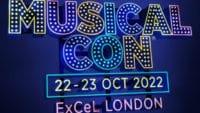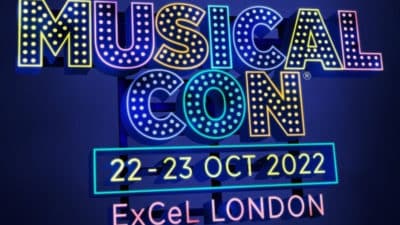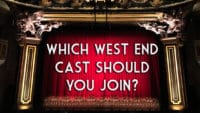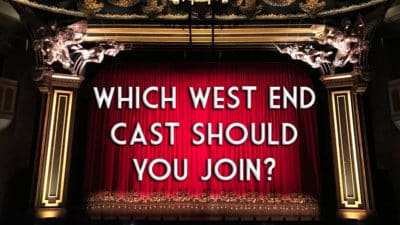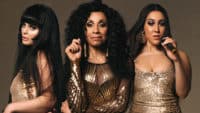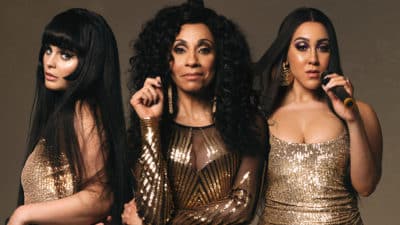Theatre
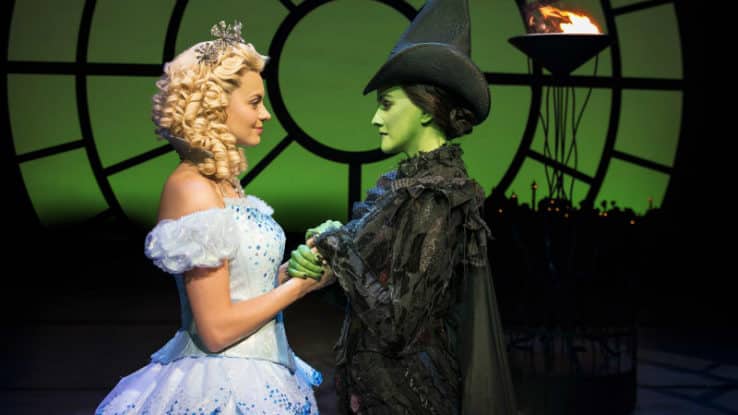
Interview
Interview: Wicked stars Alice Fearn and Sophie Evans
As part of our ongoing series celebrating Women in Theatre, we sit down with West End leading ladies Alice Fearn and Sophie Evans
Hit musical Wicked is now in its 12th year in the West End, and continues to break records at the Apollo Victoria Theatre in London.
The show, which is a prequel-of-sorts to the L Frank Baum’s classic story of The Wizard of Oz, tells the origin of the green-skinned Elphaba and reveals the untold story of the witches of Oz.
As a show, it has become the very definition of a modern classic and features hit songs including Popular, For Good and the colossal Defying Gravity, which has since transcended the genre of musical theatre to become a classic in its own right.
At its heart, the show focuses on the tumultuous and unexpected friendship between Elphaba and Glinda, who learn to change the course of history and fulfill their destinies as the Wicked Witch of the West and Glinda the Good.
As we continue our celebration of incredible women in theatre – the actors, directors, the characters and the stories they tell – we caught up with current Wicked stars Alice Fearn and Sophie Evans to discuss the importance of their roles on stage and how it feels to play such iconic characters night after night.

Click above to read more of our Women In Theatre features.
Who or what was your biggest influence when approaching a career in theatre?
Sophie Evans. To be honest, there wasn’t one person in particular, I just had a very supportive family that allowed me to do what I wanted to do. I loved big female singers like Celine Dion and Barbra Streisand, and those were the kind of women I would listen to and stand up and sing along to in the living room, so I suppose if I was going to say anybody it’d be those kinds of women.
Alice Fearn. I had a few growing up. I was a really big fan of Judi Dench and I saw her in a production of A Little Night Music and what I liked was that while she wasn’t the most prolific singer and didn’t have the world’s most enormous voice, she could really perform these musical numbers with a real truth and honesty, and I remember grabbing hold of that and always wanting to aspire to achieve the same.
Looking back on your career up until now, is there any advice you’d like to be able to give your younger self?
SE. Don’t worry too much and know that things will always find a way to funnily fall into place. When I was younger, I wanted everything then and there and didn’t really have the maturity to think that some jobs are not meant to go your way and the right job is potentially just around the corner, so I’d definitely say to my younger self, keep going and just be patient.
AF. I think in a way I’ve magically done the right thing. I’ve never let any “no” get to me too much. There was one part that I remember not getting and then crying about it, so I suppose I’d say, “I bet you feel stupid now” – because actually not getting that job led on to me getting a much better job maybe a month or so later, and my career went in (I hope) a much better direction. So, I’d tell myself not to shed a tear over a single job, because, as Sophie said, you just don’t know what’s around the corner.
In Wicked, you’re currently playing two incredible female roles in the West End. How would you define Elphaba and Glinda as characters?
AF. Elphaba is a stalwart. She’s honest, she sees everything in black and white, and if something is wrong she’ll voice why she thinks it’s wrong and how it should be. She also has an extraordinary amount of love, for everyone, and I think that love is never more so acknowledged than when she finally gets her friend in Glinda. And so, everything you expect her to be, she isn’t, and that’s why I love playing her.
Elphaba is incredibly strong as a woman, too.
AF. She’s so strong! To go through what she goes through and to still be standing at the end of it is a testament to how strong she is.
SE. Glinda’s very strong too, I’d say – she knows what she wants, and even though she comes from a very privileged background, she quickly learns when she goes to school that life doesn’t always go your way and you have to figure out your own path. She’s honest, too. She’s caring… she’s into her looks, but in a nice way. But honesty is definitely the thing I like best about her. She doesn’t always come across as the nicest person, but her attitude always comes from an honest place, and I do think honesty is always the best policy. She grows so much in the show and that’s what I love about her; she has to go on this journey, and she grows from a teenager to a woman, and I think that’s really special.
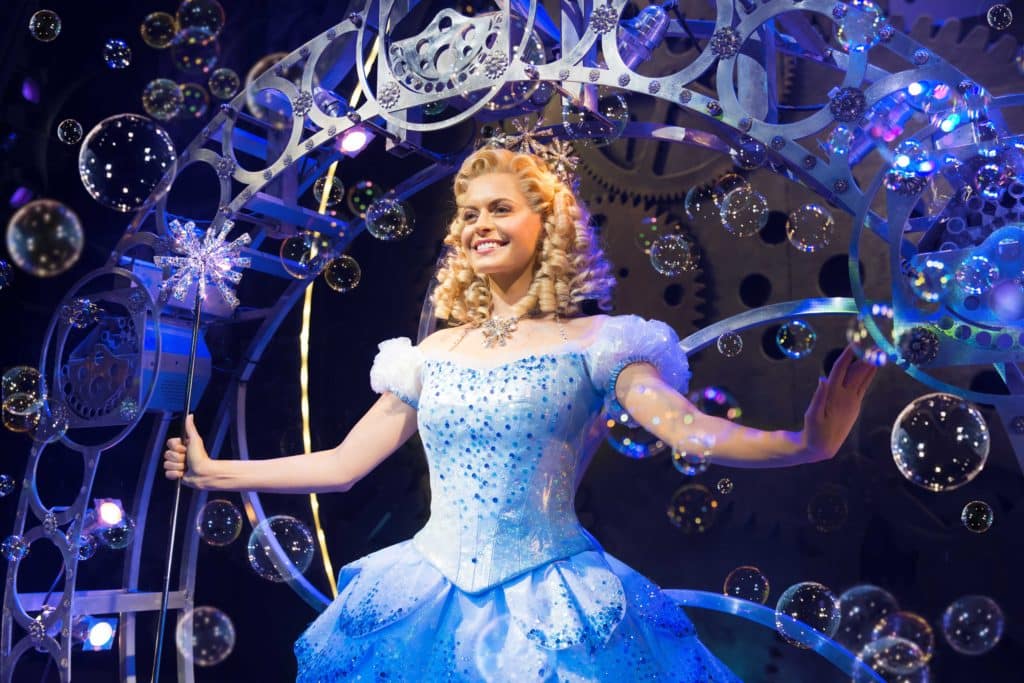
And for you as an actress, that journey must be really interesting to play, night after night?
SE. Oh definitely. My journey is different every night. Some shows I feel more vulnerable, some shows I feel stronger, so it’s lovely to have that journey. She finds the man she loves, she loses him, she gains a best friend, she loses her… and in the end, she kind of has to do it all on her own, has to be very strong-willed, and just say, “I can do this”.
You mentioned the friendship between Elphaba and Glinda there – which is obviously so integral to the success and the narrative of the show. It’s so empowering and quite rare to see two women on stage have the relationship these character have, how is that to play?
SE. It is a rarity! Women are so often played against each other because of a love interest – and that does happen in Wicked – but we come round full circle as well and realise that friendship wins out in the end.
AF. I think that’s what people connect to so much, you know, they [Elphaba and Glinda] have this friendship that people recognise from their own lives: they argue, they fall out, they laugh, they cry with each other – so it’s very much a friendship that goes through all the things audience members would recognise; and yet, at the end of it all, after everything they’ve been through, they can still love each other and can still tell each other that love will go on forever – and that’s such a powerful thing to portray on stage.
SE. And in life, I’m a real girl’s girl, I’ve lots and lots of girlfriends who I am always there for even when things get tough and even though you might fall out over something, we always find each other again. I always get very emotional in the show when we sing For Good because there’s been many different times in my life where that sentiment, that message, has been very real to me.
Do you think it’s important for theatre generally to portray strong, empowering female roles on the stage?
AF. Oh of course! There’s nothing worse than thinking of women being these walkover, wallflower characters, and Elphaba and Glinda are definitely not like that. What’s amazing is that we see these two women go up against everything, they’re both standing there at opposite ends of the scale using whatever power they have to make everything right and that’s a very powerful message.
SE. I also think there has to be empowering roles for men on stage too, and roles that are different from your heroic Fiyero-type roles. And that is happening now, especially with shows like Everybody’s Talking About Jamie which celebrates something different. What I love about musical theatre is that there’s room for everyone at the table, it’s so open and it embraces people from all different walks of life and gives everyone a chance to shine – and, obviously, women have a massive place in that, and Alice and I are especially lucky to have two of the best female roles in the West End.
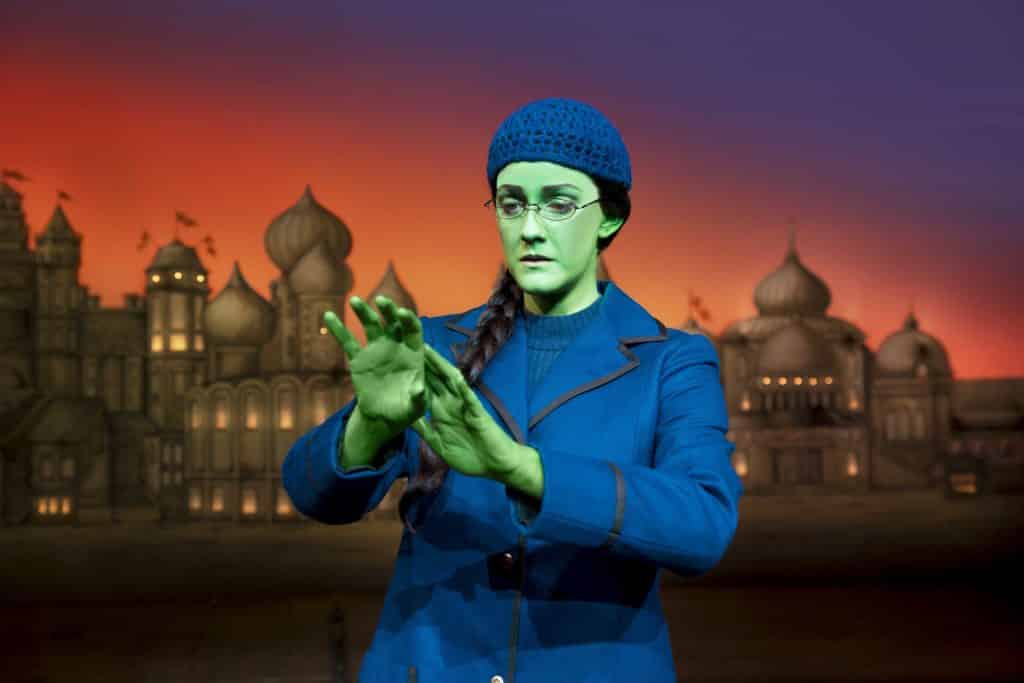
You were talking quite a bit about the wider spectrum of the West End there, are there any roles out that that either of you would love to play that you haven’t had the chance to yet?
SE. If I’m ever lucky enough I’d love to play Miss Honey in Matilda. A beautiful, beautiful character, and, again, she’s strong in her own way. I’d love to do the classic Fantine in Les Mis when I’m a little bit older, too. That’d be very cool.
AF. I think I’ve been very lucky in that I’ve already got to play a couple of those roles I’d always wanted to play. Elphaba was a real coup for me, to be honest; since I saw Wicked in 2006, I’ve always said it was a role I’d really love to do – and here I am. Beyond that, I’d really like to create a new character that one’s heard of before, that no one has played. That would be a real challenge for me.
What is it about a brand new role that excites you?
AF. I get asked a lot about what I take from people who have played Elphaba before, and you can’t help but see what they’ve done and at least try to honour the great things they’ve portrayed with her while making it your own, but yeah, to be able to do something from scratch would allow people to think that about me, to want to emulate what was great about that character, and add things on top of that, and that’s a great legacy.
Finally what tips would you give to any aspiring young women who are looking to make it in the industry?
SE. Work hard, that’s definitely the top one; but also learning to have patience is key, and learning to come back from a “no” is one of the biggest lessons I had to learn. A “no” can make you a lot stronger than as “yes”, actually, so that would be something I’d like to impress on people.
AF. I think in this industry, we try and make it feel like a family and we stand with each other and support each other. But, saying that, there are going to be times when you’re up against people who you know as a friend or as people you just recognise from other auditions; and I think what we should aspire to be is out for each other, no matter what: if someone gets a job over you, don’t cry about it, don’t be angry about it, that’s life! They won that day and that’s okay – and as I said before, maybe you not getting that role means you get something better anyway. So, be there for one another, hold your head up high and as long as you do your best you can be proud of yourself.
Discover more amazing Women in Theatre on our blog and buy tickets for West End shows in our dedicated entertainment guide.
Alice Fearn and Sophie Evans appear in Wicked, currently running at the Apollo Victoria, London, in the West End. You can purchase tickets with our No Booking Fee offer until 31 March right here.




